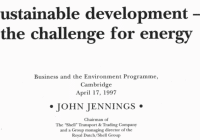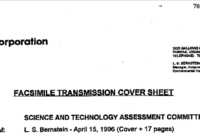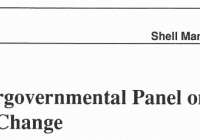
2002 ExxonMobil Lobbyist Randy Randol Memorandum to White House on Approach to Climate Change Research
This document is a fax, dated March 22, 2002 from ExxonMobil’s Randy Randol to Phillip Cooney of the Bush Council on Environmental Quality. Attached is a cover letter from Exxon’s Brian Flannery describing his scientific expertise, work with the Intergovernmental Panel on Climate Change, and outline of ExxonMobil’s recommendations. Share this post on your feed […]






